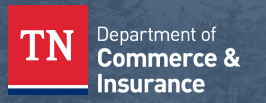Coronavirus is new way for fraudsters to perpetrate old scams
NASHVILLE — The Tennessee Department of Commerce & Insurance’s (TDCI) Securities Division along with the North American Securities Administrators Association (NASAA) and FINRA (Financial Industry Regulatory Authority) are encouraging Tennessee investors to proceed cautiously when it comes to new investment opportunities as fraudsters continue to take advantage of the buzz surrounding companies promoting products and services related to the COVID-19 pandemic.
“The COVID-19 pandemic has shown us that scam artists are willing to make big promises in order to capitalize on investors’ fears and uncertainty,” said TDCI Commissioner Hodgen Mainda. “I urge investors to ask questions and do their due diligence about an investment before spending money on a supposed ‘can’t miss’ opportunity. Tennessee investors should remember the old adage: ‘If it sounds too good to be true, it probably is.’”
With the world focused on the pandemic, scammers are preying upon unsuspecting investors by continuing to peddle supposed “miracle” cures or purportedly innovative technologies. No cures or vaccines for the coronavirus currently exist. Investors should be wary of schemes they see on the Internet and social media that claim to be raising money for companies promising new health care products that can detect, treat or cure the coronavirus. While some of these claims could be legitimate, many will ring hollow, leaving investors with nothing but broken promises and empty pockets.
“Inexperienced retail investors may fall victim to scammers willing to use tried and true scams such as promising investments that deliver a guaranteed high rate of return in order to exploit the global health crisis,” said TDCI Assistant Commissioner Elizabeth Bowling. “If investors have questions about an investment opportunity or the salesperson, they should immediately contact TDCI’s Securities Division at (615) 741-5900 or contact us through our website before investing.”
These pitches may include offers to invest in medical technology or healthcare companies by purchasing membership units in general or limited partnerships, stocks or “penny stocks,” or through other investment vehicles, including private placement offerings, initial coin offerings or other cryptocurrency-related investors or crowdfunding. (To learn more about these products, see the “Additional Resources” section of this press release below.)
State and provincial securities regulators recently launched an enforcement initiative to disrupt investment schemes related to the pandemic. Many of the schemes shared common characteristics.
- They focus on fear and anxiety by promoting safe returns independent of the stock market and the economy.
- They exploit trendy assets such as cryptocurrencies or complex investment programs involving foreign currencies. While they may sound new or exciting, these types of products are also very unfamiliar to most inexperienced retail investors.
- They claim to give “passive income” or “cash flow” and promise to pay it on a monthly basis, which may appeal to unemployed retail investors or others negatively impacted by changes in the economy.
- The often misrepresent the risks associated with the investments or use professional-looking webpages to attempt to add legitimacy to the fraudulent offerings.
Even when investment offerings are made in accordance with the law, many are highly speculative and subject to the forces of market demand and competition. Be wary of optimistic offers, especially when made during a crisis.
How to Protect Yourself from COVID-19 Scams
- Do not invest money you cannot afford to lose.
- Do your research. Check out the individuals or companies behind the investment. Searching the web can reveal civil, criminal or regulatory actions taken against companies or individuals.
- Ask key questions about the business and its promoters before you hand over any money in a private placement offering.
- Contact TDCI’s Securities Division to learn more about the investment opportunity, the salesperson and the promoter.
- Before putting your money into a healthcare investment or any investment, ask questions about the risks and fees involved. Conduct your own independent research or seek the opinion of a financial professional who is registered with TDCI or FINRA. Never invest in something you do not fully understand
- Be wary of participating in a general partnership or joint venture if you have no specific experience, knowledge or education in the industry sector – which is often the healthcare industry for coronavirus-related frauds – and would have to rely on others’ expertise.
- Resist sales techniques that include repeated phone calls, cold calls, e-mails or high-pressure sales pitches hyping the profitability of the deal or promising a sure thing.
- Remember that fraudsters can be quite good at producing professional-looking websites boasting current productivity levels and profits and which photos of vaccine or medical equipment production sites. These easily can be faked.
- Read the fine print. Every investment is unique. Do not assume that what you have been presented with is the same or has similar terms as other offerings you may have seen.
Check the SEC’s website to find out whether the company files any reports or other disclosures with the SEC. Read the reports and disclosures and verify any information you have heard about the company.
What You Can Do
Before making any investment decision, make sure you understand what you are investing in and who you are doing business with. You can verify the status of investment professionals and find out whether they have a history of customer harm by contacting TDCI at 615-741-3187 or use the tools available from the SEC and FINRA.
Additional Resources
General
NASAA COVID-19 Update Center
CSA COVID Information Hub
Private Offerings
NASAA Informed Investor Advisory: Private Placement Offerings
FINRA Private Placements, Explained
Crowdfunding
NASAA Informed Investor Advisory: Crowdfunding
FINRA’s Crowdfunding and the JOBS Act: What Investors Should Know
Initial Coin Offerings & Cryptocurrencies









